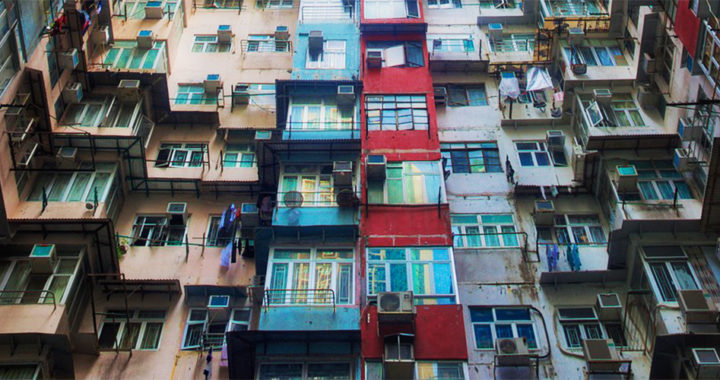The cost of living in Hong Kong is one of the highest in the world, and this is partly and primarily due to the fact that housing in the region is very expensive. The annual Demographia International Housing Affordability Survey has ranked the alpha global city as the most expensive housing market in the world. Note that Hong Kong has topped the survey for nine consecutive years, particularly from 2011 to 2019.
Details from the most recent survey published in 2019 revealed that the city has a 20.9 price-income ratio or PIR while other major cities in the world have considerably lower PIRs. For example, New York has a 5.5 PIR, London has 8.3 PIR, and Sydney has 11.7 PIR.
The PIR value of Hong Kong means that it would take an average of 21 years for an individual resident or a single-income family to buy their own home. The high prices in the housing markets also translate to high rents. On average, an individual has to set aside more than 70 percent of his or her earnings for rent alone. But why is housing in Hong Kong very expensive? What are the factors affecting the prices in the Hong Kong housing market?
Exploring and Explaining the Reasons Why Hong Kong Housing is Very Expensive
High Demand and Low Supply
One of the major factors affecting the prices in the housing market of Hong Kong centers on the fundamental law of supply and demand or more specifically, the relationship of supply and demand with prices. As a backgrounder, there are over 7.4 million people of various nationalities living in the city. With a land area of 1104 square kilometers, it is one of the most densely populated places in the world.
The land area is not only small. A number of specific land areas are inhabitable due to their geographical characteristics. The habitable land areas are essentially sandwiched by bodies of water and stiff mountains. There are also considerations for green spaces and the need to preserve heritage sites. As a primary financial hub and an access point to Mainland China, there is a high demand to live and work in Hong Kong.
Land Management By the Government
Another reason why housing in Hong Kong is expensive rests on the way the government manages the land. The government controls most of the lands that can be developed for real estate purposes, and they offer these areas to developers through tender. The system means that development rights would go to the developer with the most attractive offer. In addition, tender awards are increasingly going to Mainland Chinese developers that are likely to control the prices for real estate buyers.
The South China Morning Post reported that in February 2017 that two Mainland Chinese developers paid USD 2.7 billion a plot of residential land measuring 11,761 square meters, thus topping market valuation by almost 50 percent. Analysts noted that the value translates to around USD 2800 per square foot in land cost. Property agents further expect apartments to sell at about USD 4000 per square foot.
Just half of the housing market is also available on the private market because the government controls nearly half of the total supply. It specifically has programs and policies such as public housing rentals and assisted homeownership purchase programs targeting families with low income. The set up makes land scarcer. Furthermore, the lack of competition gives the market little room for pricing corrections.
A Further Note on the Real Estate Market
It is also important to mention that Hong Kong is one of the most tax-friendly economies in the world. The government has intentionally lowered taxes to attract businesses from different industries and sectors. To generate internal revenues, it controls and sells lands to private developers. Lowering the prices of lands for private developers would mean that the city would not be able to generate enough revenue.
The fact that there is a high demand for housing and rentals in the city due to the bustling economic activity makes private land development attractive to large investors, which in turn, would earn from developing land areas, as well as selling or renting them to city dwellers. Nevertheless, there is little intensive for the government to cut down or control housing costs because they need to attract land developers and keep the revenues flowing.
Summary and Takeaway: A Snapshot of Housing in Hong Kong
• It would take an average of 21 years for an individual or family to save money to buy their own real estate property.
• There is a high demand for land in the city due to the influx of businesses and laborers seeking to capitalize on the thriving economy.
• Hong Kong is inhabited by over 7.4 million people of various nationalities squeezed in a land area of 1104 square meters.
• The total land area of the city is not only small. A number of specific land areas are inhabitable due to their geographical characteristics.
• Government sells lands to developers through a tender. Development rights would go to the developer with the most attractive offer.
• Just half of the housing market is also available on the private market because the government controls nearly half of the supply of the total supply.
• Tender awards are increasingly going to Mainland Chinese developers that are likely to control the prices for real estate buyers.
• The government generates most of its revenues through land sales. There is little incentive for it to lower and control the cost of housing.
FURTHER READINGS AND REFERENCES
- Cox, W. and Pavletich, H. 2019. 15th Annual Demographia International Housing Affordability Survey: 2019. Demographia. Available via PDF
- Sito, P., Zhen, S., and Ng, N. 2017, February 24. “Chinese Builders Pay Record HK$16.86 Billion for Ap Lei Chau Site.” South China Morning Post. Available online
